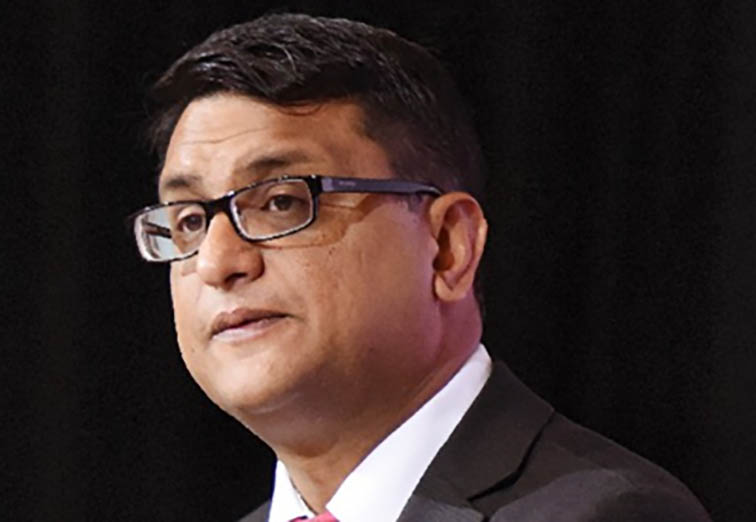(Trinidad Guardian) American Chamber of Commerce CEO Nirad Tewarie says Government intervention into the ongoing foreign exchange shortage is long overdue.
Tewarie made the comment yesterday in the wake of an announcement by Finance Minis-ter Colm Imbert that he would soon meet with business on the issue.
Foreign exchange challenges, Tewarie added, have been mounting for some time, with businesses consistently seeing reduced supply.
“Over the last couple months, many businesses have been complaining about an acute shortage of foreign exchange. Companies that used to manage with smaller than needed allocations saw even that access curtailed,” Tewarie said. He explained that this could be partially connected to a reduc-ed amount of foreign exchange being sold to authorised foreign exchange dealers, including the banks, by the upstream energy and petroleum companies in recent months.
“These companies were able to access Government-issued VAT bonds for large, outstanding amounts of VAT owed to them over several years. They cashed these TT dollar bonds at the banks and now have enough local currency to pay local expenses. For several, this additional source of TT dollars will carry them into Q1 or Q2 of calendar 2024,” he said.
The shortage, coupled with the “unattractive” prospect of selling US collars to the local market, has created a harsh reality for many businesses, the AMCHAM CEO explained.
He said, “It is past time that the Government seriously and collaboratively sets medium term targets and implements the relevant policy measures to address the chronic foreign exchange shortage in T&T. Our economy is, after all, the largest in the English-speaking Caribbean. It also has the largest financial sector. We cannot continue in this manner. “
Tewarie said a sizeable injection of foreign exchange was needed into the financial system, and also urged the Ministry of Finance to pay out VAT refunds urgently, as he noted that “many energy companies have about 50 per cent of their VAT refunds to be settled.”
“It is likely that those who disagree with this position will dismiss it by saying that the private sector has to earn more foreign exchange. This is true. However, it would be irrational for those who do earn more foreign exchange to bring it back to the local system in a scenario in which both the returns that are likely to be earned on that capital are low and there is a possibility that when that foreign exchange is needed it may be inaccessible, if even for a period of time.”
Tewarie said he was heartened to see Imbert express a willingness to work with the Central Bank and business community to come up with solutions.
Meanwhile, other business chambers echoed concerns raised about the impact Republic Bank’s US dollar credit card limit reduction would have on small businesses heading into the Christmas season.
“Cutting down on what’s available to the small and medium enterprises, which is 70 per cent of our membership, really is a little bit of a blow because these people use their credit cards. They don’t have the facilities that larger companies have. So they use their credit cards largely to pay all the invoices from away and to have it cut in half in the event of the Republic bank change. It really is a severe blow to them being able to expand on their business interests,” Trinidad and Tobago Chamber of Commerce CEO Stephen De Gannes said.
Fyzabad Chamber president Angie Jairam called for more structured reduction, as she too noted that several small businesses relied on credit cards to clear their imports.
“We have to do certain things in order to improve (the forex situation) but a reduction that big, a decrease of $5,000. I mean, there are some of us bringing in US to the country, but there are lots of businesses who are small businesses especially, they depend on this. And I think there should be a more structured way of doing this,” Jairam said.
San Juan Business Association president Abrahim Ali feared the change could have a ripple effect on businesses and employment.
“You have small and micro businesses at further risk of closures. And it’s a deep concern. It’s a deep concern for employment. There’s a deep concern for the survivability of businesses. And you know the budget, we are within it but the budget is two weeks away.
“What do we do in the meantime, what happens with the Christmas season that is approaching?” asked Ali.

